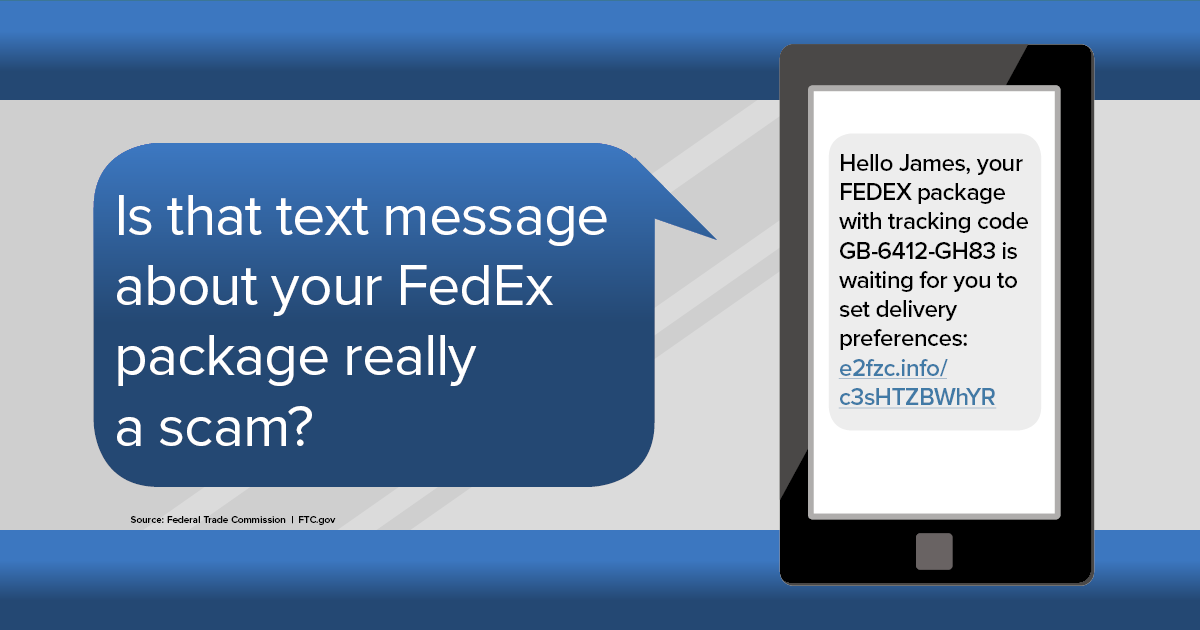Expecting packages shipped to your home this holiday season? You’re not the only one… scammers are, too.
Did you get a text message with a shipment tracking code and a link to update your delivery preferences? It's a scam. Learn more.
We’ve learned of a phony “delivery failure notification” email making the rounds. It looks like it’s from the U.S. Postal Service — but it’s not. The email says you missed a delivery. But, it says, if you print the attached form and take it to your local post office, you can pick up your package and avoid penalties. The message might also include a link for more details.
Here’s the truth: the email is bogus and there is no package. And if you download the attachment or click on a link, you’re likely to end up with a virus or malware on your device.
Con artists often use the names and logos of familiar organizations to get under your guard. So how do you tell what’s legit and what’s a scam? Here are some ways to spot a bogus email:
- It tells you to click on a link or download an attachment
- It urges you to take immediate action
- It asks you to “re-confirm” personal or financial information
Another sure sign an email is a scam? If you hover over the link in the email, it won’t show the official website of the supposed sender — in this case, the U.S. Postal Service website.
For more tips, check out our articles on phishing and malware. And if you have questions about a delivery by the U.S. Postal Service, visit usps.com or call 1-800-ASK-USPS.


In reply to I have known someone He told by Rose
This sounds like a scam. This can happen when you meet someone online. They offer to send you a gift or package. But when the package arrives, you get a message from an official that says you must pay a fee or taxes to get the package. The person you are chatting with online is cooperating with the fake official. They are working together to get your money. If you pay, they will keep your money. If you pay, they might threaten you, and tell you to pay more money. They are working to frighten you and take your money. You can choose to stop talking to them. You could ignore the text. This sounds like a scam to take your money.
In reply to I too have received a email by Debbie
If you give someone a copy of your driver's license they can steal your identity. You're right to be very cautious about sharing too much information. You don't have to give information just because a form asks for it. You don't have to accept the package at all.
There are other scams related to getting packages from someone you meet online. Some scammers say they're sending jewelry, electronics, cash, or other valuable goods. But when the package arrives, you'll get a call, email or text from a "customs" or "delivery" service, demanding a large payment. They'll say you're responsible for clearance fees, taxes, or other charges, and threaten you if you won't pay. That's a scam, and the person you met online is cooperating with the fake "customs" or "delivery" service.
In reply to Hi i have received a message by Don't use your…
This could be a scam. Check the law in your country. Does the real customs service require people to pay to get packages?
Sometimes when you meet someone new online, they will offer to send you a package. But when the package arrives, a fake “Customs” official says you must pay a fee or taxes to get the package. That's because the person you are chatting with online is cooperating with the fake “Customs” person. They are working together to get your money. If you pay, they will keep your money. If you pay one time, they might ask you for more money. If you do not pay, they might threaten you and try to scare you, because they want your money. That's part of the scam. You can choose to block them. them. There really is no package. This is all a story to take your money.
In reply to Hi i have received a message by Don't use your…
In reply to This from Mid-way by Muna
Please read the comment from FTC staff on this page. This sounds like a scam.
In reply to Do they usually text you on by Kets
In reply to I recieved a fb friend by John
In reply to I recieved a fb friend by John
In reply to I had meet someone through an by Suleyma
In reply to Please help for my cousin by Ash
In reply to I had a friend send me some by Hopeless907
Pagination